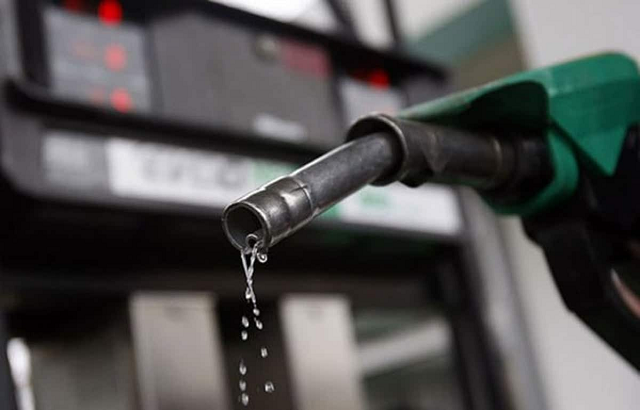Depending on what side of the spectrum you are standing on, the year 2020 has been both eventful and challenging for households, businesses and governments all around the world. The COVID-19 pandemic has revealed how volatile the global economy is. Coming down home, Nigeria is witnessing a downturn in its economic fortunes, owing to the fall in the price of crude oil, which is the mainstay of Africa’s largest economy. The federal government is in dire straits, hence its aggressive drive to expand its sources of revenue. Sadly, the Nigerian economy is heavily dependent on importation, and this places serious pressure on the local economy and currency.
The implementation of new economic policies is beginning to negatively impact the living conditions of Nigerians, and the citizens have expressed displeasure over the new multiple financial burdens they must endure, even in the midst of the COVID-19 pandemic.
With no significant stimulus packages from government, households have had to rely on savings to get by, some businesses were forced to cut down their workforce, some who survived the workplace fire did so with varying degrees of burns on their pay envelopes. Many argue that the timing of the federal government’s implementation of its new economic policies is ill-advised and will worsen the country’s inflation situation, as the burden of these new fees and utility charges will be passed down to end-users.
Let us take a look at the Top 7 Reasons why 2020 has been Nigeria’s toughest economic year, in a long while:
#1. Introduction of Stamp Duty charge on Electronic Bank Transactions
The Attorney General of the Federation has resolved the contention over stamp duty collection rights between NIPOST and the FIRS. Banks have begun collecting ₦50 stamp duty on electronic transfers on ₦10,000 and above, on both savings and current accounts, on behalf of the FIRS. Also, property owners are required to pay up to as high as a 6% stamp duty fee on tenancy and lease agreements. Even though the FIRS rationalizes to the contrary, the burden of the stamp duty charge will most likely be borne by the tenant or lessee, thereby causing inflation in the property market.
With the FIRS targeting ₦1trillion annually from stamp duty, Nigerians will be watching closely to see the visible impact these revenues will have on their lives.
#2. VAT increase from 5 percent to 7.5 percent
In February, 2020, the increase in VAT rate from 5 to 7.5 percent took effect. VAT is deductible on all purchases, ranging from recharge cards, groceries, electricity bill to flight tickets. This is charged directly on the product or service at the point of payment, which means the final consumer bears the burden of the VAT. Not surprisingly, the implementation of the new VAT rate began four months after the government approved a ₦30,000 minimum wage, a classic case of ‘Giving with the right and collecting back with the left’. What the government did effectively was to give the illusion of salary increase.
#3. Electricity Tariff Increase
Recently, NERC announced a 100% increase in electricity tariff. The Minister of Information, Lai Mohammed, stated that the increase is targeted at consumers who experience a minimum of 12 hours of electricity daily. He stated that the federal government has spent nearly ₦1.7 trillion on subsidizing tariff shortfalls for the power sector, which is no longer sustainable. He also stated that places where power supply falls below 12 hours daily will experience no increase in their tariff. The new tariff regime began on September 1, 2020. With the new billing system in play, Nigerians are expecting better service delivery in terms of increase in the number of hours and the elimination of “off days”.
#4. Increase in Price of Petrol
The federal government announced the removal of subsidy on petroleum, thereby allowing market forces to determine the price of the product. This has led to a rise in the price of petrol locally. Many fault the government’s action, arguing that the timing is wrong and could worsen the living conditions of Nigerians, as this is expected to have a multiplier effect across all spheres of the economy. The Group MD of NNPC, Mele Kyari, during a TV interview defended government’s action as a step in the right direction. He stated that petrol subsidy is corruption-ridden.
Nigerians expect the government to encourage investment in local refining capacity to drive down cost and reduce the pump price in the long run.
#5. Unemployment Figure Jumps to 27.1 percent
The National Bureau of Statistics in its latest report on unemployment disclosed that Nigeria’s unemployment figure rose to 27.1 percent in the second quarter of 2020. The rise in the country’s unemployment situation can be linked to Nigeria’s harsh business terrain which makes the cost of doing business high and unsustainable, thereby making importation a more viable option. This, in turn, transfers job opportunities to other countries. The current administration is making efforts to improve the country’s Ease of Doing Business ranking in order to attract foreign investors to the economy, and also, encourage the citizens to embrace farming as a means of creating jobs.
Buhari recently inaugurated the National Steering Committee for Vision 2050 Agenda. It is anticipated that this long-term initiative will help create a robust roadmap that will support the creation of new and sustainable businesses that will cater to the job needs of citizens.
#6. Double Devaluation of Naira in a Single Year
Nigeria’s apex bank the Central Bank of Nigeria has devalued the Naira twice in 2020. The Naira is presently sold at ₦380/$1. This has weakened the purchasing power of Nigerians and Nigerian businesses in the international market, from a demand/import standpoint. The double devaluation in a single year underscores the high vulnerability of the Naira owing to the mono-product nature of the economy. Devaluation can work favorably for a country that has a vibrant manufacturing and services industry, like China. This policy makes its locally made products cheaper than imported goods. Sadly, Nigeria’s manufacturing sector is not competitive, due to the high cost of doing business in Nigeria, thus giving imported goods a price advantage in the market.
#7. Inflation Rate Surges to 12.82 percent
The Naira’s purchasing power is not slowing down in its descent, as it continues to grow weaker, thereby lowering the standard of living of Nigerians. The latest data on the country’s inflation rate from the National Bureau of Statistics placed it at 12.82 percent in July, 2020. This is an incentive for individuals and businesses to demand for other currencies that are more stable in value, thereby putting more pressure on the Naira. The government’s decision to close its borders is a favourable decision to local manufacturers but has not positively impacted the prices of food and other consumables.
The CBN and bank Of Industry will need to provide more support to the manufacturing and agricultural sectors, to help stabilize the prices of goods and services.












